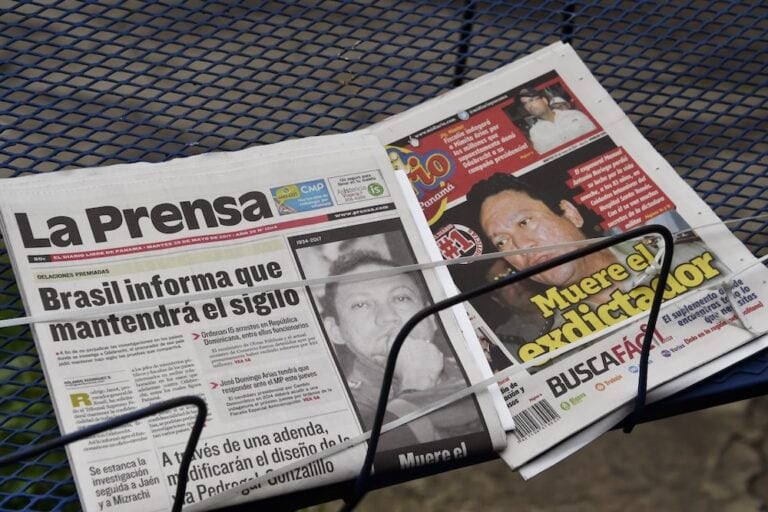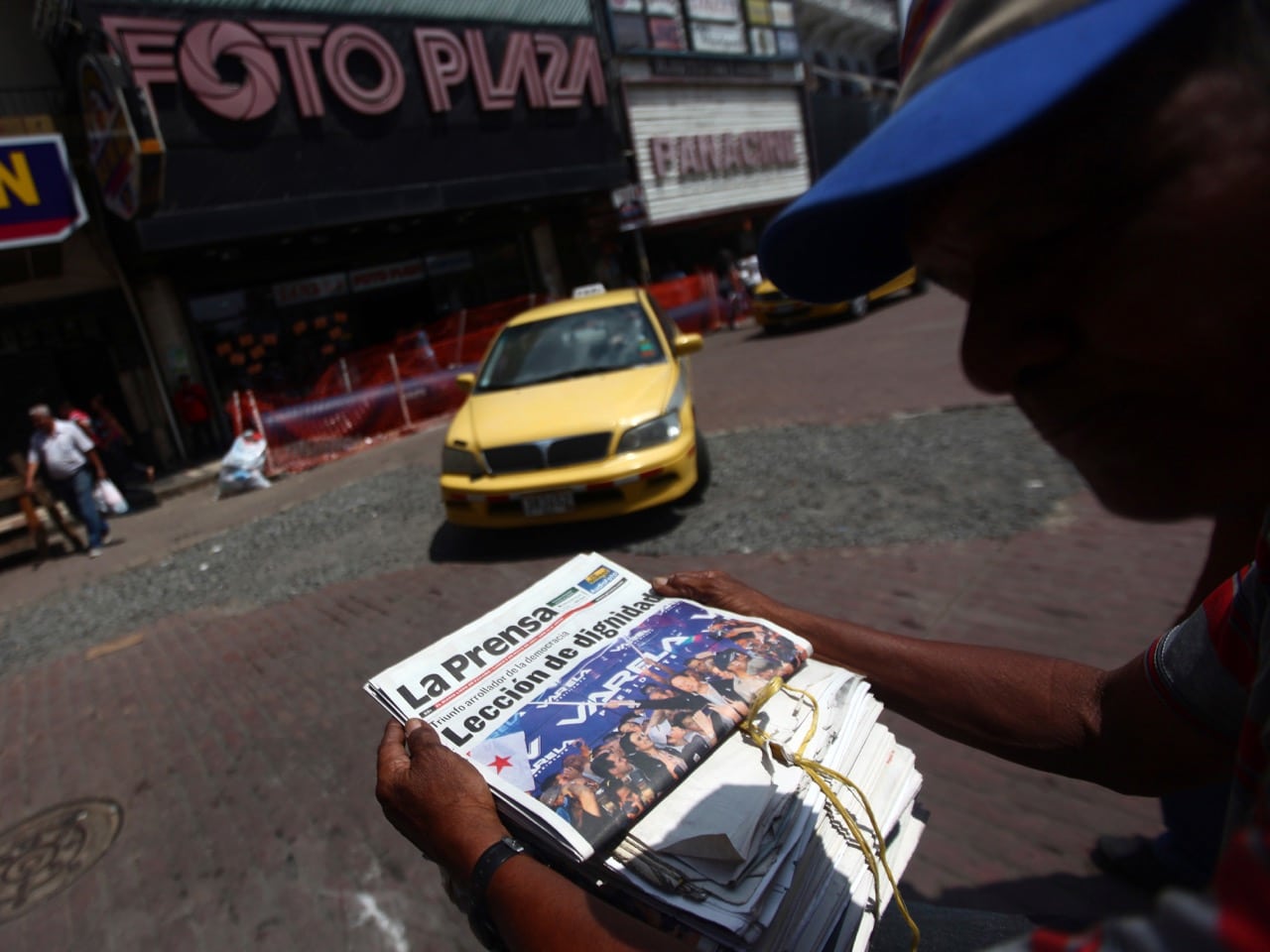(RSF/IFEX) – RSF has called on newly-elected President Martin Torrijos to repeal all laws that still provide for prison terms for media offences. Torrijos was sworn into office on 1 September 2004. “We urge you to remove these laws from Panamanian legislation within the next 100 days,” the organisation said in an appeal to Torrijos. […]
(RSF/IFEX) – RSF has called on newly-elected President Martin Torrijos to repeal all laws that still provide for prison terms for media offences. Torrijos was sworn into office on 1 September 2004.
“We urge you to remove these laws from Panamanian legislation within the next 100 days,” the organisation said in an appeal to Torrijos. “This means completing constitutional reforms to eliminate Article 33, concerning ‘insults’, and repealing articles in the Criminal Code concerning defamation and damage to [an individual’s] reputation. These changes will highlight your commitment to press freedom.”
“Outgoing president Mireya Moscoso’s pardoning last week of all journalists being sued for defamation shows that the highest authorities know such laws have no place in a democracy. We ask you to follow up her action by repealing these laws.”
Article 33 of the Constitution allows public officials who believe they have been defamed to obtain a court order to imprison the offending person without trial. Articles 202 and 386 of the Judicial Procedures Code and Article 827 of the Administrative Code allow for imprisonment of three days to two months, depending on the prominence of the politician or official involved.
The outgoing Parliament passed a constitutional reform law on 27 July to repeal Article 33, but to be valid it must also be approved by the new Parliament, which was to begin meeting 1 September.
Articles 173A, 175, 307 and 308 of the Penal Code provide for up to two years in prison for defamation, “insults” or damaging the reputation of a person or a state institution. There are no plans to repeal these provisions.
On 27 August, outgoing president Moscoso pardoned more than 80 journalists who were being sued for defamation and risked imprisonment. Some of the cases dated back to the early 1990s.


